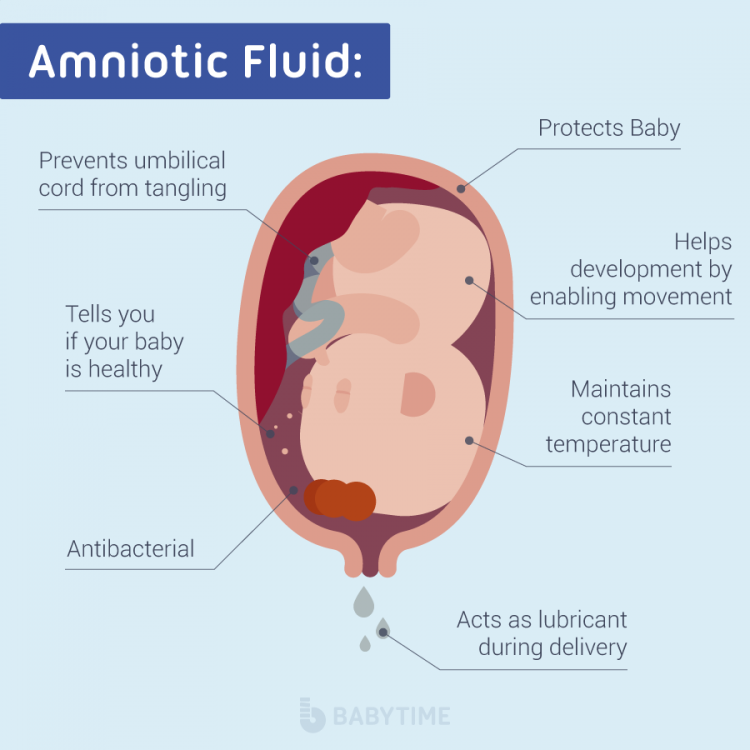 Source: bing.com
Source: bing.comPregnancy is an exciting time for any mother-to-be. As you anxiously await the arrival of your little one, you may have a lot of questions about their development. One critical aspect of fetal development is the amniotic fluid that surrounds your growing baby. In this comprehensive guide, we’ll take a deep dive into amniotic fluid and its essential role in your baby’s development.
Table of Contents
What Is Amniotic Fluid?
Amniotic fluid is a clear, slightly yellowish liquid that surrounds your developing baby in the womb. Initially, it is mostly made up of water, but as your pregnancy progresses, it also contains other substances like hormones, glucose, and electrolytes that help support your baby’s growth and development. Amniotic fluid is contained in the amniotic sac, which is a fluid-filled membrane that forms around your baby in the early stages of pregnancy.
The Role of Amniotic Fluid in Fetal Development
Amniotic fluid plays a critical role in your baby’s development, providing a protective cushioning between your baby and the outside world. It also helps regulate the temperature in the womb, allowing your baby to grow and develop in an optimal environment. Amniotic fluid helps your baby’s lungs and digestive system mature by allowing them to practice breathing and swallowing while in the womb. Additionally, amniotic fluid contains stem cells that can help with tissue repair and regeneration.
How Is Amniotic Fluid Produced?
Amniotic fluid is produced by your baby’s kidneys and lungs, as well as the placenta. Your baby swallows amniotic fluid, and it is then filtered out of their blood and passed back into the amniotic sac through their urine. This process creates a continuous flow of amniotic fluid that helps keep your baby healthy and growing.
What Happens If There Is Too Much or Too Little Amniotic Fluid?
During pregnancy, your doctor will monitor the amount of amniotic fluid in your womb. If there is too much or too little amniotic fluid, it can be a sign of a problem. Too much amniotic fluid, a condition called polyhydramnios, can indicate a problem with your baby’s digestive system or a twin pregnancy. Too little amniotic fluid, a condition called oligohydramnios, can be a sign of several conditions, including kidney problems or a ruptured amniotic sac.
When Does Amniotic Fluid Begin to Form?
Amniotic fluid begins to form around two weeks after fertilization, and by the end of the first trimester, the amniotic sac is fully formed. Throughout your pregnancy, the amount of amniotic fluid in your womb will increase, peaking at around week 36. At this point, your baby’s kidneys and lungs are fully developed, and they are capable of regulating the amount of amniotic fluid in their body.
In Conclusion
In summary, amniotic fluid plays a critical role in your baby’s development, providing a protective cushioning and regulating their temperature in the womb. The continuous flow of amniotic fluid also allows your baby to practice breathing and swallowing while in the womb, helping their lungs and digestive system mature. It’s essential to monitor the amount of amniotic fluid throughout your pregnancy to ensure your baby’s health and well-being.
As always, if you have any questions or concerns about your pregnancy, be sure to talk to your healthcare provider. They can give you personalized advice and help you understand the developments happening in your body.
Frequently Asked Questions About Amniotic Fluid and Baby Development
Q: Can the amount of amniotic fluid affect my baby’s growth?
Yes, if there is too much or too little amniotic fluid, it can affect your baby’s growth and development. That’s why your doctor will monitor the amount of amniotic fluid in your womb throughout your pregnancy.
Q: Can I increase the amount of amniotic fluid in my womb?
No, you cannot increase the amount of amniotic fluid in your womb. Your body naturally regulates the amount of amniotic fluid as your baby grows and develops.
Q: What happens if my waters break early?
If your waters break before your baby is due, it’s important to seek medical attention immediately. Your baby is at risk of infection, and your healthcare provider may need to induce labor or perform a c-section.
Q: Can amniotic fluid leak?
Yes, amniotic fluid can leak in small amounts, which is normal during pregnancy. However, if you notice a sudden gush of fluid, it could be a sign that your waters have broken, and you should seek medical attention immediately.
Q: Is it normal to be able to feel my baby moving in the amniotic fluid?
Yes, it’s normal to feel your baby moving in the amniotic fluid. As your baby grows and develops, their movements will become more frequent and noticeable.
